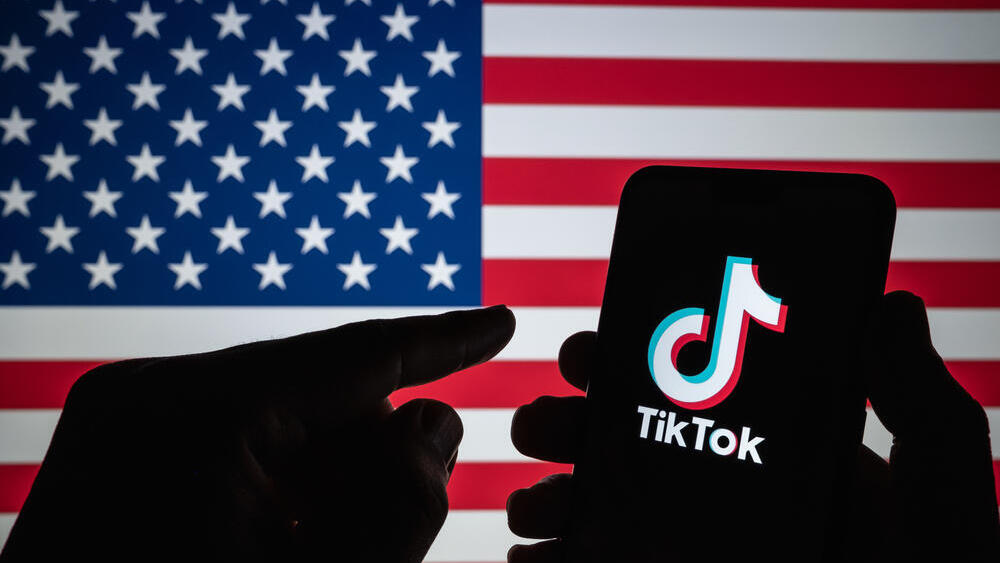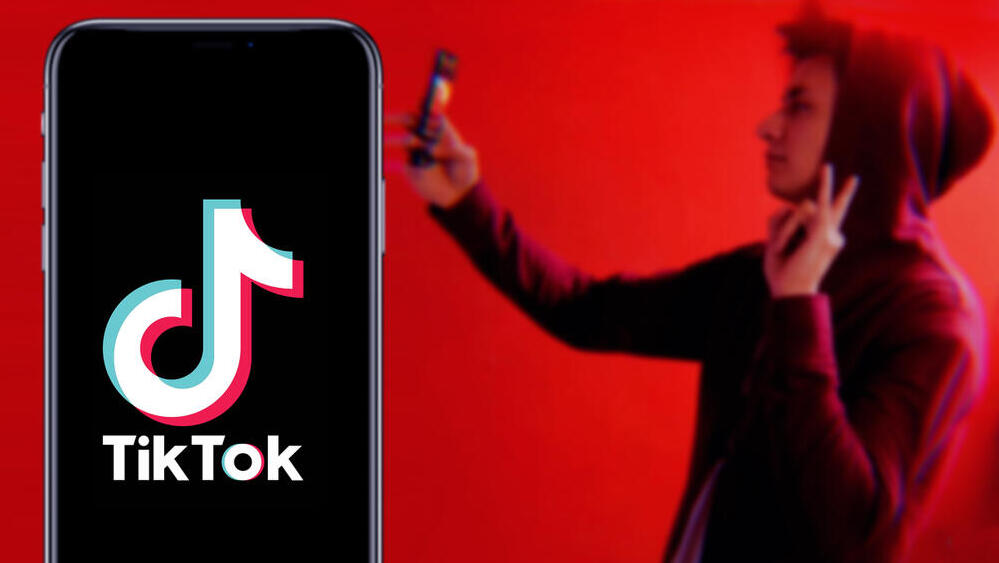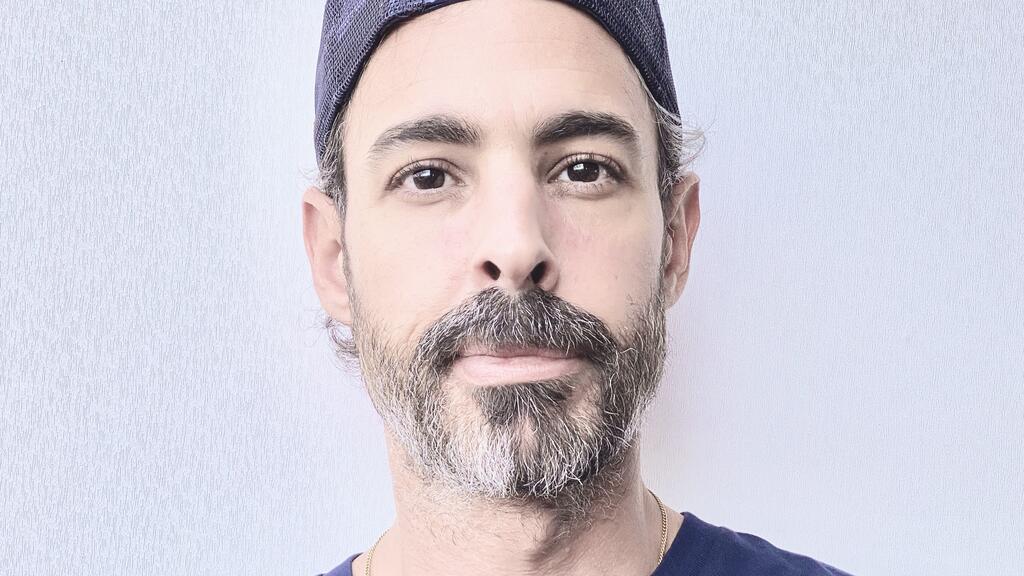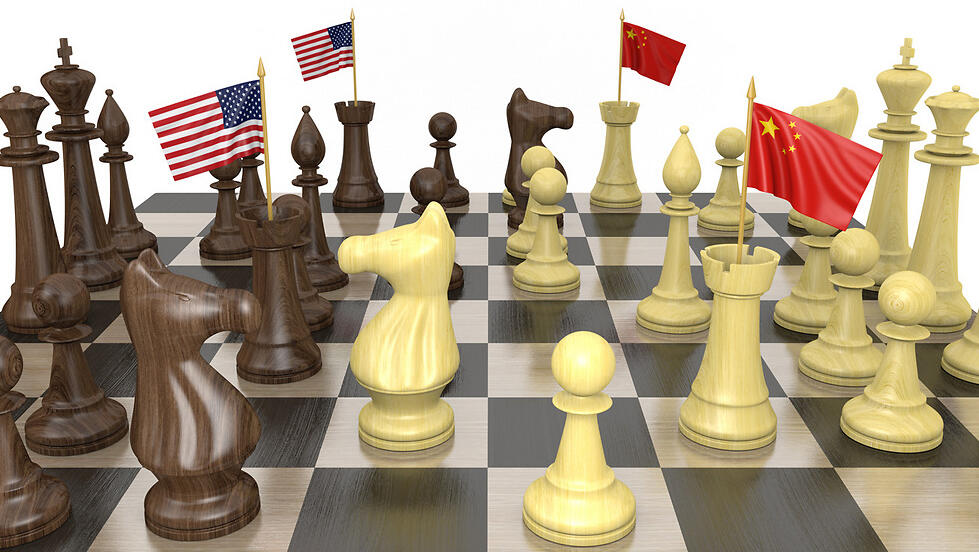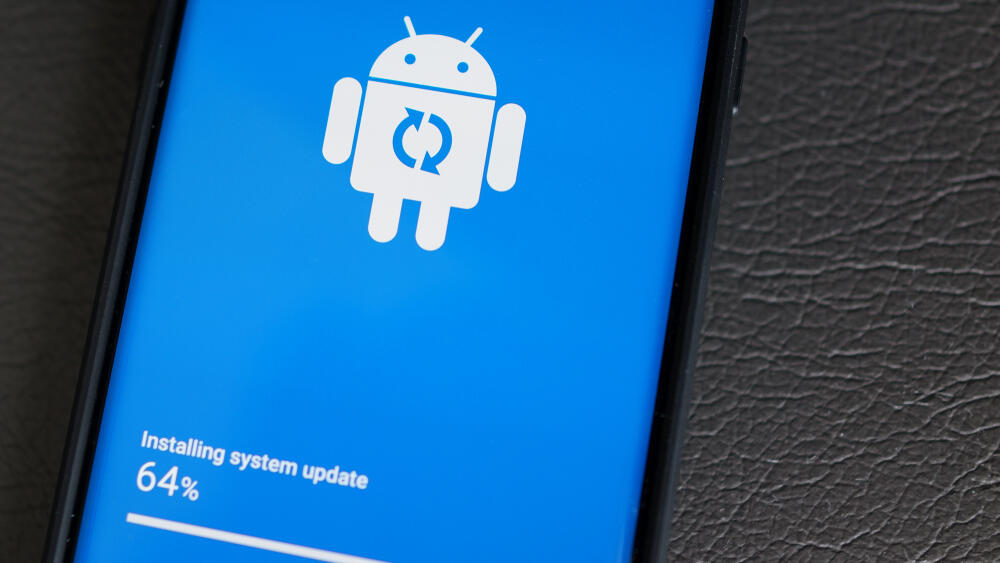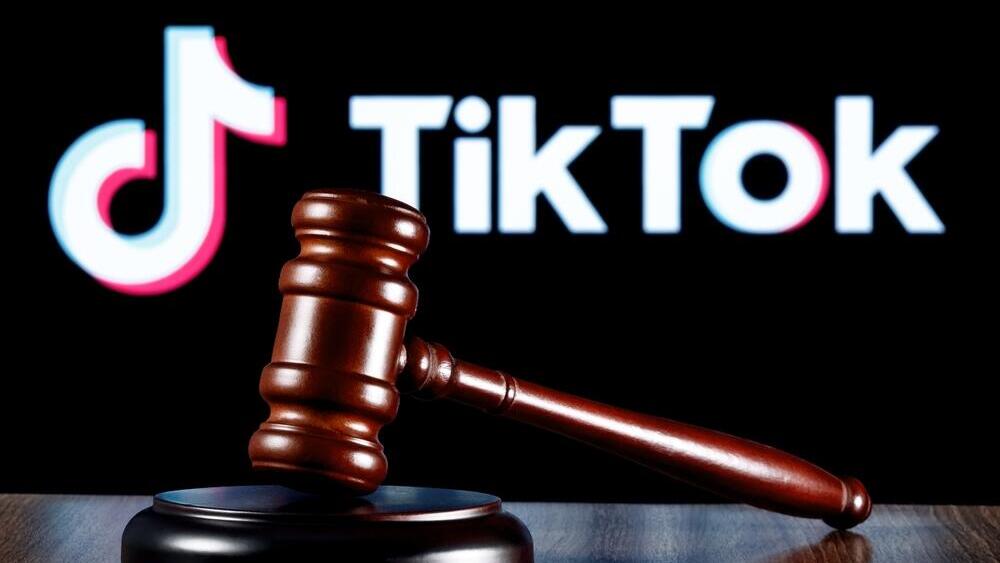Getting your Trinity Audio player ready...
The popular Chinese social media platform TikTok is facing an ultimatum on Western shores: to be sold to local companies or be banned.
The U.S. and a growing number of countries have already banned TikTok on government devices, including Canada, the UK, Belgium, official institutions of the European Union, and others.
The concern of the West stems from the fact that behind the short and provocative videos on the social network stands a Chinese giant called ByteDance, raising fears of links to the Chinese government.
However, these allegations have been brewing for a while, so why has the West decided to crack down on the popular social media platform all of a sudden?
Ynet spoke to Dr. Tehilla Shwartz Altshuler, an expert in law and technology from the Israel Democracy Institute, to learn more about the political tug-of-war behind the scenes.
"We are in the second round here," she says, noting that even during Donald Trump's presidency, he expressed the same concerns and acted for TikTok to be sold to the U.S.
"Trump didn’t want to ban TikTok, but to force it to be sold to an American company. What he wanted to do was sound, but because of his persona, everything he did was perceived as very toxic.
“In this case, he suggested that TikTok be sold to Walmart and added that the government should take a commission on the deal. When the Biden administration came into office, all of Trump's policies were scrapped."
Additional complexity that weighed on the Biden administration to agree to the idea is the appointment of Lina Khan, who is considered a major opponent of the centralization of tech giants, to head the Federal Trade Commission (FTC).
"If you were talking to Lina Khan tomorrow, it's doubtful that she would say it's good to sell TikTok to an American company, let alone one of the technology giants like Oracle or Microsoft (who were candidates for such an acquisition during the Trump administration). So the U.S. government is now in a dilemma about what to do with TikTok," says Shwartz Altshuler.
Despite these political complexities, testimonies began to emerge that, contrary to TikTok's repeated denials, ByteDance does have access to users' private data, which the government has already struggled to ignore.
An investigation by BuzzFeed done last summer revealed that ByteDance employees accessed non-public information about TikTok users in the United States, and in the months that followed, the U.S. started sounding more cautious regarding the dangers of the platform, including FBI Director Christopher Wray.
"As far as a political process goes, it's a reasonable timetable to get the result we see now, and tomorrow for the first time, TikTok CEO Shu Zi Chew will appear in Congress and they’ll grill him like they grilled [Meta CEO Mark] Zuckerberg," explains Shwartz Altshuler.
"It's not a sudden crisis, it's just a process that took time to happen. There were elections, previous policies were canceled, it took time for them to look at it again. There was involvement from the biosecurity authorities who warned of the danger of government employees using the platform.
But it's interesting that in the end, even Biden and Trump agree on the fundamental issue that TikTok is a problem."
So this is the process in the U.S., but how can we explain the Western move to block access to the platform on government devices?
"India was the first to do it before. In Canada, the UK, and the U.S., it's more or less happening at the same time, all English-speaking countries are speaking with each other and coordinating with the U.S. government. Even New Zealand.
“The fear in all these countries arises from a combination that very specifically characterizes information platforms - firstly, they fear the uses of the information gathered on officials, and secondly, they fear that the platform is used to spread fake news, disinformation, and hatred. It's this combination the West fears in Facebook and Russia."
Shwartz Altshuler explains that the rationale in Europe is different: "Europe is now beginning to act against the data policies of Facebook and Google, which have already been fined in the billions. It makes sense for them to also look into TikTok’s policy.”
Oded Vanunu, head of product weaknesses research at cybersecurity firm Check Point, detailed the flaws in the popular platform's data security.
"A few years ago, when the Americans began to warn against TikTok, I found a very large security flaw in the application with my team - we managed to access unsecured databases, through which we could obtain personal information about anyone we wanted to find on TikTok - emails, phones, and more."
He explains that in his opinion, one of the reasons for the West's concern about TikTok is the platform's connections to the Chinese government, which raises suspicions about its intentions and handling of data.
Additionally, Vanunu also refers to concerns in the U.S. about the platform being used for user manipulation. "From China's perspective, TikTok is an app with two billion users who pour out immense amounts of data - locations, photos, videos, a lot of information. We’re in an era where the issue of cyber warfare is happening at the level of armies.”
“Americans are afraid the over 100 million users in America could be influenced by China,” Vanunu adds. “Americans have already seen how foreign governments manipulate them during elections, and define it as a national security risk."
Vanunu emphasizes that "technologically, no one can prevent the Chinese government or any power from accessing information through a cyber attack, or directly if the information sits on their local servers."
Does the solution mean for the U.S. to simply ban TikTok in the country?
"The Americans were very keen to create this restriction. I would call the cyber arena the main fighting ring between world powers.”
From a technical perspective, if the U.S. decides to ban TikTok, how will it be implemented?
"It’s possible to limit access by geolocation, so the U.S. can ask Apple and Google to remove the availability of TikTok from app stores based on geographic location - then the app won’t be available to those who access it from the U.S."
But on Android devices, you can also download and install apps from the internet.
"It is possible to do so, but the user creates a double risk for himself - everything downloaded from outside the store, by definition, can be malicious. If the user decides to take the risk, the U.S. won’t be able to prevent them. Only China can do so because it has a firewall over the entire country's communications and control over the IP level."
Vanunu also adds that such a restriction can be bypassed using VPN and that blocking the app’s web version won’t be possible either. So the ban has many loopholes. "The U.S. is a free country, so Americans will avoid access through the app stores themselves," he explains. “Anyone who wants to bypass this will be able to, but will risk using unauthorized software."
The solution that TikTok is trying to promote to avoid extreme measures by the U.S. is called "Project Texas" - a $1.5 billion investment to transfer data on American users to the U.S. and allow the technology giant Oracle to oversee it.
Shwartz Altshuler describes this proposal as an interesting move. "In TikTok’s self-regulation of and its association with Oracle, it tried to do what digital giants before it did - to say 'don't worry, we’ll take care of our regulations.'”
Compared to the trust and safety efforts made over the years by Google, Facebook, Microsoft, and ChatGPT, TikTok's investment is much greater. TikTok agrees to transfer data to the West and allow third-party control, while Facebook did the opposite - it returned European data to the United States to escape regulation, to avoid imposing stricter regulations."
When asked whether this step can really protect U.S. data, Vanunu sounded hesitant. "It's a tactical public-relations move, you can prepare a plan and implement some regulations, but as long as the information belongs to a Chinese company, there are still holes that aren’t filled. As long as TikTok is a subsidiary of ByteDance, there will always be a connection.”
“Communication in the app will continue to be connected to worldwide servers, so it means that I could potentially look into data of those in the U.S. on any server, even those located within China.”
Where do you think this issue is heading?
"As long as Americans define it as a threat to national security, it's hard for me to see TikTok making this move without being sold," says Vanunu.
"If the U.S. insists to solve it, they will, as they did with Huawei. Ultimately, if TikTok's intentions are to create an entertaining app, they’ll agree to sell, give ByteDance their share, and make a decision that’s beneficial to their business. But, if the Chinese won’t be willing to do so under any circumstances, then things will begin to get suspicious,” Vanunu explained.
Shwartz Altshuler says that "for now, the Biden administration is offering an ultimatum rather than a sales pitch. If it really comes to the point where ByteDance needs to sell TikTok so that the West can use it, then the question of who buys it is sure to cause upheaval in the U.S. government.”
"Another point to consider is Israel,” Shwartz Altshuler adds. “If the U.S. is confident enough to say that an embargo should be imposed and the app should be removed from the stores, why is there no discussion about it here?”


